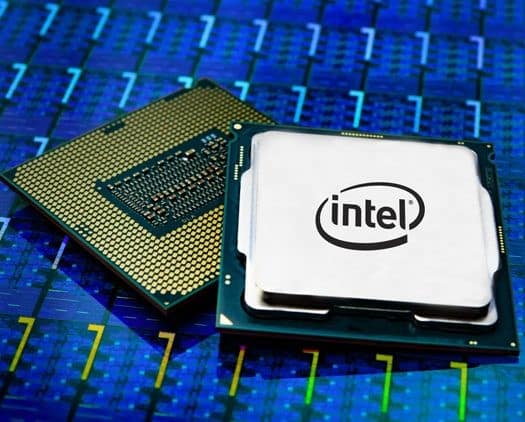When deciding on a processor to power a personal computer device, few names have the prolific name reputation of the Intel Corporation, based in California. Intel has been a market leader and a household name for decades with a variety of processor chips such as Core, Xeon, and Pentium. Brands like Apple, Lenovo, and Dell have used Intel chips in their computers for years.
Intel has earned its reputation over the years, so Intel processors certainly have their share of advantages. However, there are also some disadvantages one would need to consider. Let’s weigh out some of the pros and cons of Intel Processors.

Pros of Intel Processors
1.) Compatibility: Being one of the most important processor brand names on the market, the Intel CPUs are available widely. This provides consumers with a more flexible ability of PC choices, a greater variety of features, and can be found in devices going for a lower price.
2.) Power Consumption: Intel processors in notebook computers are not electricity-intensive, using less power than other CPUs on the market. For instance, the AMD CPU uses up to double or even triple the wattage as Intel’s Atom CPU, which powers the Netbook. The difference is readily noticeable in the battery by comparison.
3.) Heat Generation. Due to is lower wattage consumption, the Intel processing chips generate less heat. In a mini-computer, builders pack parts more tightly together, so less heat generated by the processor causes everything else to stay cooler.
4.) Production Capacity. With 15 CPU development plants globally, Intel can generate a higher fabrication volume, meaning that their CPUs are going to be available more widely and used in a significant number of machines.
5.) Integrated Graphics: Generally, when you’re looking at a CPU, it comes down to either AMD or Intel. One thing that gives Intel an upper hand is that it comes with integrated Iris or HD graphics out of the box. That means you can go straight to gaming or streaming high-quality video without a GPU.
Cons of Intel Processors
1.) Availability. On the darker side of high production capacity, there is also another factor involved. Being in higher demand means that there is a lot of manufacturers competing for the finite volume of Intel processors. This means that they are less widely available to those who are not ahead of the curve. When a new version of processors begins development, many manufacturers will be caught in a situation where they will be “behind the times” with how long it takes them to acquire the chips.
2.) Power Drain. While the power drain in notebook PCs is very low, that does not hold for desktop computers. These are electricity-intensive, generating more heat, and therefore causing the PCs cooling system to work overtime, producing a higher power drain.
3.) Heat. Some of the more powerful Intel processors do generate a considerable amount of heat. The multicore processors use more energy, causing the CPU to be hotter, and therefore require multiple fans operating to cool it down. This type of heat can decrease the processor’s durability, and make a notebook type PC hot to the touch as the fanning system is not as robust as a desktop’s.
4.) Price. Intel is a commanding name in the industry, known for their better processors, and therefore, their brand name commands a higher market price. The higher the processor price, the more it costs PC manufacturers causing them to raise the entire cost of the machine. Because of this, most devices using Intel processors are more expensive. Once new models are released, the cost of older processors tend to reduce in price.
- Tulip Mania – The Story of One of History’s Worst Financial Bubbles - May 15, 2022
- The True Story of Rapunzel - February 22, 2022
- The Blue Fugates: A Kentucky Family Born with Blue Skin - August 17, 2021